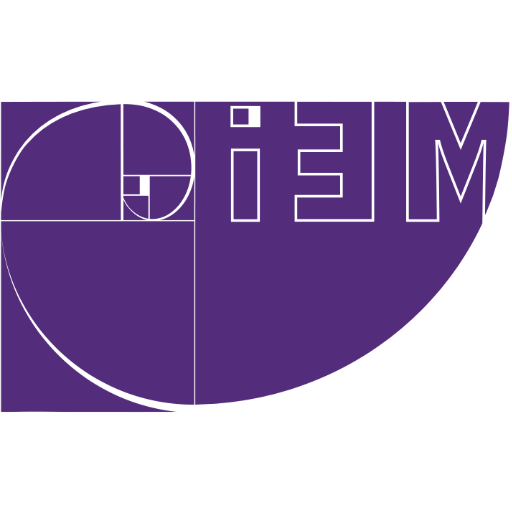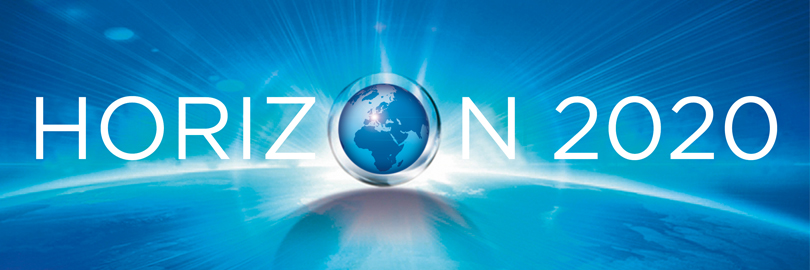Project 1 - Strategies for Blockchain Innovation (DC-1)
Since Blockchain is a distinctive new technology with unique features, strategy making and innovation in the context of this technology requires a reconsideration of existing best practices and knowledge. Innovation in the context of Blockchain technologies has incumbent organization juggling challenges at different levels of analysis, such as organizational, alliance and ecosystem. Moreover, as Blockchain entails value propositions that are at odds with existing (linear) strategic approaches, (circular) processes for strategizing innovation5 needs to be better understood. The implications of the Blockchain strategy on organizational identity and the related tensions is another aspect that will be studied in this project. How to organize for Blockchain innovation, including the bridging role of the innovation unit as well as effective strategies for value co-creation and appropriation in ecosystem, are important aspects that will be covered by DC-1.
Project 2 - Blockchain-enabled corporate digital innovation architectures (DC-2)
Many value-adding digital solutions are based on sharing information both within the firm, across units such as plants, offices, or subsidiaries, as well as between the firm and other ecosystem partners, such as vendors, clients or suppliers. Transaction safety and data protection are key concern that are often considered a major roadblock to the creation of data backbones and the deployment of solutions that are based on the sharing and trading of this data. However, other factors related to coordination complexity, trust, lack of process standards or misaligned incentives can also hinder such information sharing. It is not clear how these factors interact with the decision to implement blockchain technology, possibly removing some of the barriers to the effective sharing of information, and subsequent development of integrative digital innovations. The purpose of dissertation DC-2 is precisely to investigate these complex interactions between known antecedents of collaborative innovation and the nascent blockchain technology.
Project 3 - Blockchain Business Models (DC-3)
The digital economy presents a different set of challenges for innovators than did the industrial economy. Platform technologies, such as Blockchain, further complicate the business problem of incumbent organizations and entrepreneurs. Given their networked nature and unique governance structures platform technologies require less standard business models and strategies for value to be created and captured. In this setting, platform leaders assume the role of architects for these ecosystems, and must design, manage, and alter ecosystems as conditions change – extremely complex tasks given the number of actors involved, the multi-faceted characteristics of these ecosystems, and high uncertainty6. The different roles between leaders and complementors, competition and cooperation, giving and protecting, create a novel field for studying how value is captured for DLT implementations and platform technologies in general. A specific dimension of this topic will concern how blockchain technology interacts with other emerging technologies to generative disruptive business models such as space technology.
Project 4 - Blockchain, smart contracts and the optimal firm vertical scope (DC-4)
Avoidance of transaction costs constitute a cornerstone of our understanding about when firm should vertically integrate the production process inside the firm boundaries. Once two parties, buyer and seller, have committed to relation-specific investments, switching is costly or just not possible. This dependence on the other party generates situations in which one firm actor can hold up another with the purpose of appropriating its rents. The risk of being held up may lead participants to underinvest in innovation. Vertical integration in this context avoids underinvestment and generates economic value.
The unalterable and open ledger of blockchain can generate smart contracts, automated scripts that execute contracts, that can provide the commitment needed to both parties to avoid holdup situations in the future. Smart contracts can either eliminate the possibility of unfair future renegotiation or commit to a fair renegotiation contained within certain ex-ante boundaries. As a result, smart contracts may provide the right incentives for both parties to invest in innovation without incurring the fixed costs of vertically integrating. The purpose of the dissertation would be to delve deeper into the conditions under which smart contracts and blockchain can vary the optimal firm scope and determine the critical contingencies in which the impact of blockchain and smart contracts can alter market structure.
Project 5 - Blockchain Organizations & Governance Mechanisms I (DC-5)
Blockchain organizations differ from traditional organizations in terms of fundamental attributes including clear organizational structures, clearly set goals, and clearly delineated roles. By employing mixed methods using observational, qualitative, and finally archival data, we plan to unearth under which circumstances organizational structures and incentives employed in distributed organizations should be preferred. The goal of this project is to provide clear guidelines for both incumbent and nascent companies on how to make the most out of their distributed organizing endeavours. DC-5 will investigate how blockchain enables the intra and inter-organizational exchange of data for the creation of value-adding digital solutions, both meant to provide heightened operational awareness, predictive and prescriptive solution, as well as predictive and prescriptive analytics applications.
Project 6 - Blockchain for responsible business I: planet (DC-6)
The main purpose of this project is to improve our understanding of how blockchain can drive responsible business behaviour. Businesses around the world are under ever increasing pressure by a more critical and ethically aware society. CSR is a board room top priority. Blockchain and Multi-Party technology is on track to become a key driver for these companies to prove their stakeholders that they can adhere to these higher ethical standards by improving transparency, security and traceability throughout their supply chains. Initial hypotheses on where blockchain can be applied for more responsible businesses considering our planet are: a) Sustainability: blockchain can be applied to provide transparency on the sustainability practices incl. carbon emissions of (consumer) products. Consumers can even become part of the ecosystem and incentivized to join companies in reducing carbon footprints, b) Multiparty Decarbonization: how blockchain and multiparty systems provide ways for consortiums/ecosystems/value chains to identify opportunities to reduce “waste” and emissions (i.e., improved food recalls through granular traceability, optimized logistics through multiparty supply network, etc.). During this project the DC will follow a secondment to NEXT, an SME exploring novel applications of technology and sustainability. Specifically, they will be involved in the ECOCOIN initiative of NEXT.
Project 7 - Differences in the Dissemination of Digitized & Digitalized Innovations (DC-7)
A unique property of Blockchain is that it simultaneously enables innovations as a store of wealth and medium of exchange—in the form of security and payment tokens respectively—and innovations that are functional products or services in the form of utility tokens. This has engendered a fair degree of ambiguity about how to understand the diffusion of Blockchain innovations among a userbase. Extant diffusion theory is currently limited in providing insight about this because it has tended to assume innovations as being monolithic in the properties they possess. To provide theoretical and empirical insight, this project will initially adopt the lens of digitization-digitalization to theorize and validate how Blockchain innovations can exhibit different diffusion patterns.
Project 8 - Role of Network Properties on Blockchain Diffusion Processes (DC-8)
The overarching goal of this project is to advance our understanding of Blockchain innovations and how we should think about the diffusion of innovations going forward. This project aims to address an apparent paradox in the forces that shape diffusion patterns of Blockchain innovations—namely that although Blockchain is designed with decentralization as a core value, while its diffusion is concurrently shaped by both centralization and decentralization forces. The project will examine how attributes both at the individual level as well as overall network structure properties affect the diffusion of Blockchain based innovations. Using the latest development on network analysis and machine learning, we will examine the impact of these forces along the dimensions of attention, resources, and exchange platforms. Additionally, this project will look at the role that technology providers and consultants play role in this regard.
Project 9 - Blockchain for responsible business II: humanity (DC-9)
The main purpose of this project is complementing DC-11, namely, to improve our understanding of how blockchain can drive responsible business behaviour. In this case the focus lies on how poverty and (gender) inequality can be reduced via more responsible businesses. Initial hypotheses on how blockchain can be applied here: a) Ethical sourcing: blockchain can transform supply chains. It can encourage responsible buying mind-sets as it can help organizations make their supply chains transparent. This can uncover unforeseen patterns and enable organizations to take responsibility for the sourcing of their product, driving compliance irrespective of regulation requirements, b) Financial inclusion: an essential component in reducing poverty and inequality. Blockchain can provide decentralized means to provide access to a financial infrastructure to the un- and underbanked (of which 56% represent women). Key challenges around cost and lack of funding, distance from financial institutions and an absence of trust can be tackled with blockchain.
Different research bodies and coalitions are already trying to shed light into the challenges and implications of DLT at the local (e.g., the Dutch Blockchain Coalition) as well as EU level (e.g., the EU commission based Blockchain Observatory & Forum). DIEM is a Doctoral Network (Industrial Doctorates) that creates a platform for researchers to engage in the co-production of knowledge by investigating state-of-the-art applications, innovation challenges and societal implications of DLT across actors and industry boundaries. It will equip DCs with the competency to understand how fundamental shifts in digital technology can disrupt business models, industries, and the society, as well as equip them to pursue rigorous and interdisciplinary research projects with real world-impact. This new generation of responsible and innovative researchers will further contribute towards transforming Europe into a society capable of building its competitiveness on digital technology. During this project the DC students will follow a secondment in ALINE, a Venture Capital firm specializing is supporting technology for good start-ups. They will be able to get involved with 2 or 3 start-ups that pursue blockchain technology projects where the goal is positive societal change.
Project 10 - Blockchain Organizations & Governance Mechanisms II (DC-10)
The goal of the projects focusing on blockchain organization and governance is to provide clear guidelines for both incumbent and nascent companies on how to make the most out of their distributed organizing endeavours. Complementing DC-5, investigating how blockchain enables the intra and inter-organizational exchange of data for the creation of value-adding digital solutions, DC-10 will investigate the influence of the external environment on the use of blockchains and in particular the role of technological and legal maturity of a country in the use of blockchain in governing inter-organizational relationships.
Project 11 - Blockchain end user adoption and societal challenges (DC-11)
While Blockchain offers perceived anonymity by design, persistent patterns of transactions could potential identity end-users in certain contexts. Given that the amount of user anonymity is both technically feasible as well as desirable from an individual and a societal perspective, there is a need to better understand the behaviour of networked individuals and groups under various levels of anonymity within the context of DLT, as well as their expectations and needs regarding privacy, rights, and security. This project will explore the dimensions of privacy, rights, and security of DLT and their societal implications, through a survey-based approach on a large scale.
Project 12 - Blockchain in Government (DC-12)
Early research on Blockchain has focused on advocating the immense possibilities of the technology while recently, a wave of literature discusses its various technical limitations. Yet, most of the challenges are located between these extremes and involve implementation complexities, trade-offs, limitations, materiality, and governance aspects which might limit the possibilities of DLT, especially for governments7. Our government partner, having a long experience in implementing cutting edge ICTs for the public sector, has stressed the dearth of knowledge among IT professionals relating to the application of DLT in the government sector and urged for more research in the area to satisfy the increasing interest of governments in DLT. Some of the key issues currently unaddressed include alignment of technology with wider societal needs, transitioning from governance to networked governance and novel challenges for auditing and data stewardship. Such understanding would advance timely and viable policies putting governments in the role of enabler, instead of inhibitor.
Funded by
This project has received funding form the European Union’s HORIZON-MSCA-2021-DN-01 programme under grant agreement No 101073510



